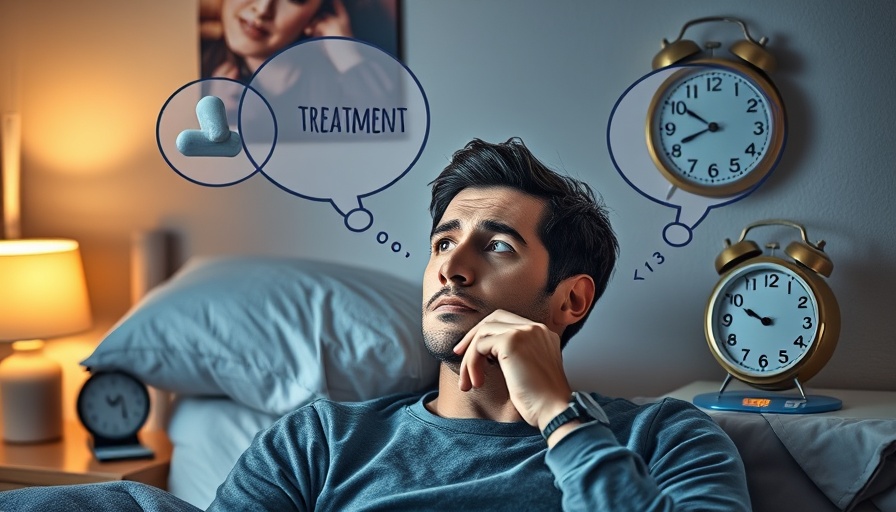
Understanding Idiopathic Hypersomnia: What You Need to Know
Idiopathic hypersomnia, while lesser-known than its counterpart narcolepsy, is a serious sleep disorder that affects individuals' daytime functioning. It's characterized by excessive sleepiness, despite having long durations of overnight sleep. Parents of children who struggle with sleep often find this condition perplexing, as it skips the typical signs of fatigue associated with other sleep disorders.
Decoding Treatment Options for Better Sleep Quality
Recent advancements in sleep medicine are exploring effective treatments for idiopathic hypersomnia. New clinical trials, such as the Alba study, are investigating the potential of innovative medications that could enhance sleep quality by stabilizing the sleep-wake cycle. This is particularly relevant for families seeking to improve their children's sleep health and daily function.
Connecting Sleep with Mental Health: Why It Matters
Quality sleep is essential not just for physical health, but also for mental wellness. High levels of daytime sleepiness can lead to emotional and behavioral challenges in children and adolescents. Understanding these connections between sleep disorders and mental health can empower parents to seek timely interventions and reinforce healthy bedtime routines that promote sleep quality.
The Role of Society in Addressing Sleep Challenges
Sleep hygiene practices vary greatly across cultures, with some urban communities facing unique challenges due to noise and technology. Families must navigate these environments to support better sleep for their children, taking cues from traditional practices that emphasize natural sleep cycles and optimal sleep environments.
Empowering Parents: Insights to Foster Healthy Sleep Patterns
Parents play a crucial role in fostering healthy sleeping habits. Techniques such as establishing consistent bedtime routines and understanding the impact of diet and screen time on sleep can make a significant difference. Awareness of external factors, including the influence of social media and electronics use, is also vital in mitigating sleep-related issues.
Future Perspectives on Sleep Research and Treatment
The direction of sleep research is promising, especially with the integration of technology. With innovations like sleep tracking devices and mobile health apps, understanding individual sleep patterns has never been easier. These tools not only provide insights into sleep hygiene but also support better decision-making regarding sleep health.
Taking Action: How to Stay Informed
Parents should actively seek resources on sleep disorders, understanding how they can influence their children's wellbeing. Engaging in sleep education programs and consulting with sleep specialists can help demystify conditions like idiopathic hypersomnia and other sleep challenges. Awareness campaigns also highlight the importance of sleep in overall health, urging families to prioritize sleep hygiene.
By nurturing environments that encourage healthy sleep practices, and by advocating for remains of sleep disorders, parents can help their children lead fulfilling lives. Through ongoing education and community support, we can combat the complexities of sleep disorders together.
 Add Row
Add Row  Add
Add 




Write A Comment